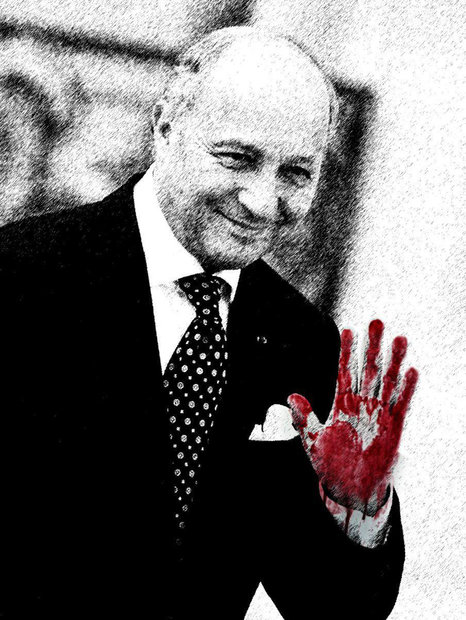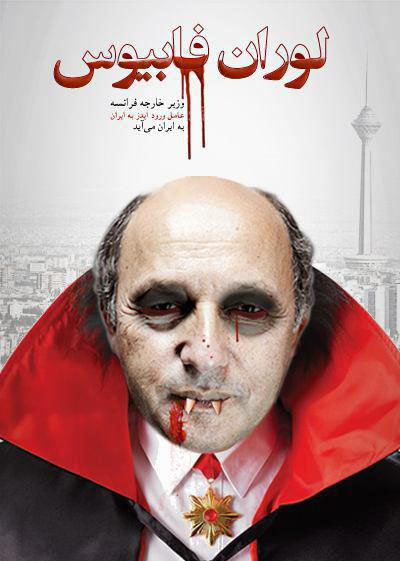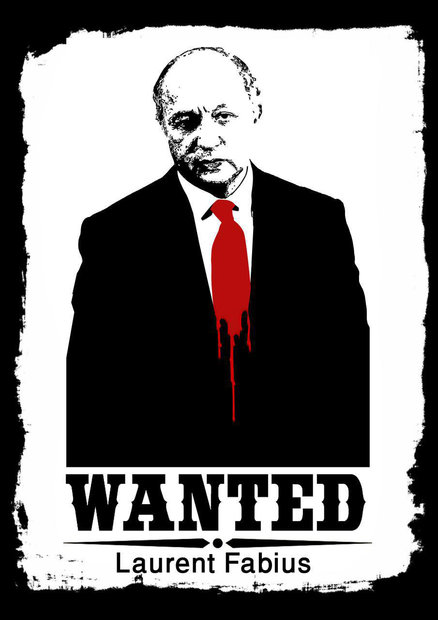The news was simple and clear; French Foreign Minister Laurent Fabius will visit Iran in few days. However, it was not as simple as it seemed. The name just rang a bell in historical memory of Iranians.
Laurent Fabius is a familiar politician for many Iranians aside from his anti-Iran approach during the nuclear negotiations. The name ‘Laurent Fabius’ is equal to AIDS in Iranian minds. The current French foreign minister was serving his country as the prime minister when HIV-infected bloods were imported to Iran in 1999 by a French company which had skipped necessary tests by his green light. The blood supplies, containing HIV virus, were used for patients with hemophilia and affected them with AIDS and hepatitis after receiving the imported blood.

According to Iran’s Ministry of Health, approximately 300 Iranians were infected with the tainted blood. The Ministry’s report also shows that at least 125 patients, transfused with French blood supply had died.
The lethal blood supplies affected countries including West Germany, Italy, Argentina, Saudi Arabia, Iraq and Iran, the only country that didn’t receive compensation from France.
This is why the public opinion is against the visit Fabius is going to pay to Tehran. The social media, in recent days, has seen many campaigns demonstrating the opposition and reminding the scandal. Many have shared illustrations demonizing the ex-PM and current FM. A campaign on Google+ under the name “Campaign Against Fabius’ Visit” shares the latest pictures and media reports. Opposing the visit, these campaigners are angered by indolence and silence of Iran’s government.

However, the media and news outlets have been active enough to stir the public opinion on the issue. As soon as the news of the visit was released, numbers of article on the blood case and Laurent Fabius appeared on different newspapers and news websites.
Although, Fabius was charged in court for manslaughter and criminal negligence in the scandal over HIV-tainted blood, he was acquitted for lack of evidence. Nevertheless, an official apology would be helpful in settling down the public anger. Yet Fabius never expressed regret of what was done under his premiership.

The French ill-famed official is heading to Tehran after a deal was sealed on Iran’s nuclear program in Vienna July 14th. Iranians who are still remembering France's Bad Cop role during nearly two years of nuclear negotiations and consider Fabius as the mouthpiece of Saudi Arabia and Israel in the talks, have now gained a chance to show their dual anger. Although “la vie” seems “en rose” after the nuclear deal, in particular for opportunist Western governments, but historical facts are still alive enough to make it gloomy. Laurent Fabius's visit to Tehran might win economic and political opportunities for France, but doubtlessly, it would lose hearts and minds of many Iranians more than before and would mark a dark spot in the european country's public diplomacy.

























Your Comment